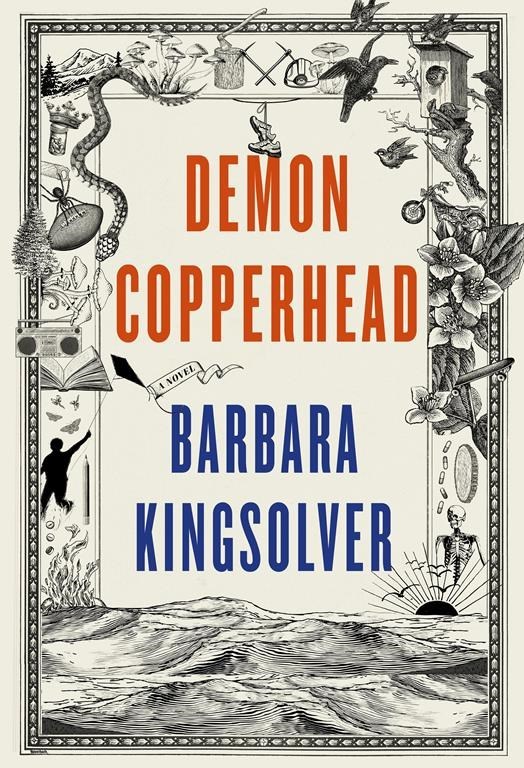тАЬDemon CopperheadтАЭ by Barbara Kingsolver (Harper)
тАЬDemon Copperhead,тАЭ the latest from Barbara Kingsolver, is a modern reimagining of тАЬDavid Copperfield,тАЭ set in Appalachia. But you donтАЩt need to have taken an English lit seminar to enjoy this novel. If youтАЩre familiar with the Charles Dickens classic, youтАЩll follow the storyтАЩs beats and chuckle when you meet the Pegs, Tommy Waddles and UHaul Pyles instead of the Peggottys, Tommy Traddles and Uriah Heep, but the story certainly stands on its own.
The voice takes some getting used to, but from the start the title character feels like a reliable narrator, telling it very much like it was. тАЬFirst, I got myself born,тАЭ begins the book, as Demon flops around on the bathroom floor of his junkie momтАЩs trailer, тАЬinside the sack that babies float in,тАЭ mom unconscious nearby. Dad is dead, a story that trickles out in bits and pieces over the course of the novel, and mom is eventually in no shape to parent, so Demon is ejected into a series of foster homes, each only slightly more bearable than the last. Other institutions fail him as well, including school, where heтАЩs deemed тАЬgiftedтАЭ only because of his artistic talent. Turns out heтАЩs great at drawing comics, тАЬa born sucker for the superhero rescue,тАЭ but can he rescue himself from the vicious cycle of institutional poverty?
Demon is looking back on his life as he tells his story, so that self-awareness provides Kingsolver ample opportunity to comment on the problem. As Demon recounts his momтАЩs funeral, he remembers first hearing the term тАЬoxy,тАЭ then expounds: тАЬGodтАЩs gift for the laid-off deep-hole man with his back and and neck bones grinding like bags of gravel. тАж For every football player with some of this or that torn up, and the whole world riding on his getting back in the game. This was our deliverance. The tree was shaken and yes, we did eat of the apple.тАЭ
Big pharma comes in for lots of deserved scorn, as addictions to prescription drugs impact countless characters. DemonтАЩs descent begins with painkillers following a football injury, then is exacerbated by a love affair with a user, who introduces him to all sorts of cheap drugs. But throughout it all, he remains a sympathetic character, at least in part because we know heтАЩs telling his own story as a cautionary tale.
ThereтАЩs more social commentary throughout, including young Demon asking about the term тАЬhillbillyтАЭ and realizing that slurs тАФ redneck, moonshiner, ridge runner, hick and deplorable тАФ end up as sources of pride, even used as bumper stickers on their trucks.
What keeps you turning the pages is the knowledge that Demon has a future. The novel ends on a note of hope тАФ not quite the tidy conclusion of тАЬDavid CopperfieldтАЭ with its wedding and five children тАФ but enough to show that not every fate is decided by the circumstances of oneтАЩs birth.
Rob Merrill, The Associated Press



